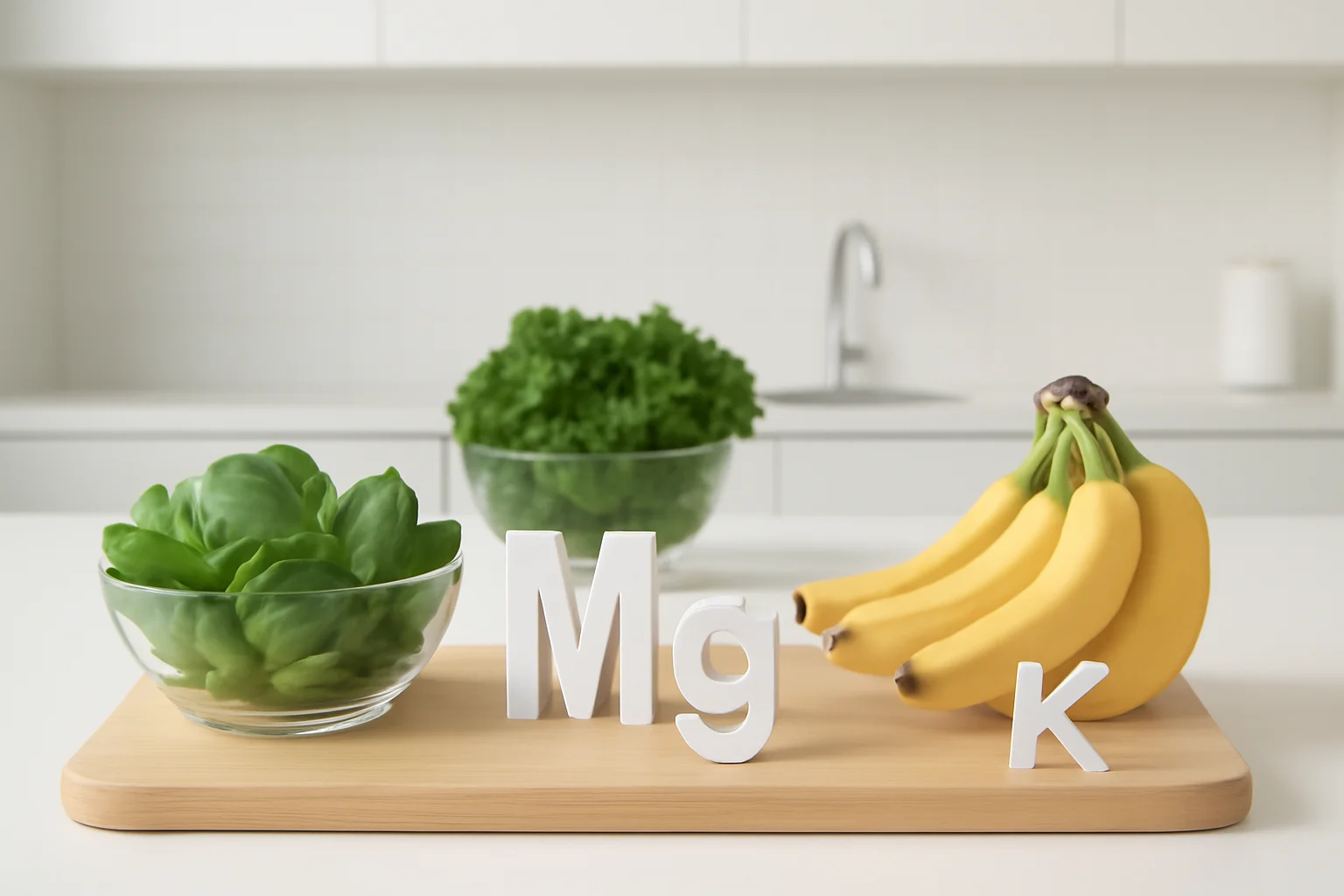
The Role of Magnesium and Potassium in Healthy Nutrition
The minerals magnesium and potassium play a prominent role in the functioning of the human body. Both are essential for the healthy operation of cells, tissues, and organs. Magnesium is responsible for the body’s energy usage, while potassium primarily plays a key role in maintaining the electrolyte balance of cells. A deficiency of these minerals can lead to various health problems, making adequate intake essential.
In modern nutrition, it is often the case that magnesium and potassium intake is insufficient, as the prevalence of processed foods and fast food has overshadowed natural sources of minerals. People tend to forget that these minerals contribute not only to physical performance but also to mental health. For example, magnesium deficiency can lead to fatigue, anxiety, and muscle cramps, while low levels of potassium can cause heart problems.
The aim of this article is to highlight the importance of these two minerals, their sources, and their effects on the body, thereby aiding conscious nutrition and the development of a healthy lifestyle.
Magnesium: The Wonderful Mineral
Magnesium is a mineral that participates in numerous biochemical processes in the body. It is necessary for the functioning of over 300 different enzymes, including those required for protein synthesis, DNA and RNA synthesis, as well as cellular respiration. Magnesium helps maintain normal muscle function and the health of the nervous system, and it also contributes to the strength of bones.
Key sources of this mineral include leafy green vegetables, nuts, seeds, whole grains, and legumes. Consuming magnesium-rich foods not only helps increase magnesium levels but also generally improves the quality of the diet.
Magnesium deficiency is a common occurrence, especially among those who consume a lot of processed foods. Symptoms of deficiency include fatigue, muscle cramps, anxiety, and depression. To ensure adequate magnesium intake, it is important to consciously select our foods and pay attention to our dietary habits.
There are simple methods available to increase magnesium intake. For example, regularly consuming green smoothies, salads, or snacks made from seeds and nuts can all contribute to meeting daily requirements. Supplementing the diet with magnesium-containing supplements can also help, but these should always be taken after consulting a physician.
Potassium: The King of Electrolytes
Potassium is one of the most important electrolytes, helping to regulate the water balance of cells, blood pressure, and the transmission of nerve impulses. Potassium is essential for the healthy functioning of muscles, including the heart muscle. Therefore, maintaining appropriate potassium levels is crucial for cardiovascular health.
Key sources of potassium include bananas, potatoes, spinach, broccoli, oranges, and nuts. Regular consumption of fresh fruits and vegetables not only helps increase potassium intake but also generally improves dietary habits.
Potassium deficiency, known as hypokalemia, can lead to numerous health problems. Symptoms include fatigue, muscle weakness, arrhythmias, and high blood pressure. Potassium deficiency is most commonly caused by inadequate nutrition, prolonged vomiting or diarrhea, and the use of certain medications.
One of the best ways to increase potassium intake is to maintain a varied diet. Herbs used to flavor foods, such as parsley and basil, are also rich in potassium. To reach the daily recommended potassium intake, it is advisable to incorporate a variety of fruits and vegetables into the diet.
The Relationship Between Magnesium and Potassium
Although magnesium and potassium serve different functions in the body, it is important to understand that they are closely interrelated. Magnesium helps potassium enter cells, while potassium contributes to the absorption of magnesium. Therefore, it is essential that both minerals are present in sufficient amounts in the body.
A balanced diet ensures that the body receives enough magnesium and potassium. However, if either mineral is lacking, it can affect the other. For example, if someone suffers from potassium deficiency, it can also result in magnesium deficiency, and vice versa.
For a healthy lifestyle, it is advisable to focus on consuming foods rich in magnesium and potassium. Combining fresh vegetables, fruits, whole grains, and nuts helps ensure that the necessary minerals are present in the right proportions in our diet.
In addition to all this, it is also worth paying attention to hydration, as water consumption aids in the absorption of minerals and the functioning of the body. Adequate fluid intake is essential, especially when leading an active lifestyle.
The combined presence of magnesium and potassium is therefore crucial for the optimal functioning of the body, so it is worth paying conscious attention to our diet.
**Warning**: This article does not constitute medical advice. Always consult your doctor for health problems.

